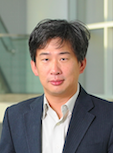 Wayne Fu
Wayne Fu
Georgia Institute of Technology
Are Hazardous Substance Rankings Effective? An Empirical Investigation of Changing Assessments of the Relative Hazards of Chemicals and Voluntary Emissions Reductions
ABSTRACT
The public dissemination of information about the hazards of chemicals can be expected to lead to pressure on firms to undertake voluntary actions. Although governmental organizations, such as the US Agency for Toxic Substances and Disease Registry (ATSDR), provide extensive public information on potential hazards of industrial chemicals, limited empirical research has been devoted to examining the link between such information dissemination and voluntary environmental efforts of firms, and the implications of firms’ operational characteristics on the extent and the nature of these efforts. We investigate facility-level emissions reductions of chemicals in relation to changes in their relative assessed hazard levels over time and examine the moderating effects of operational leanness in such a dynamic setting. Furthermore, we explore the use of source reduction and end-of-pipe treatment in response to changes in the relative assessed hazard levels of chemicals and the associated moderating effect of operational leanness.
BIOGRAPHY
Wayne Fu is a PhD candidate in operations management at the Scheller College of Business at Georgia Institute of Technology. He received his M.E. at the University of Michigan in Ann Arbor and an M.B.A. from the University of Warwick in England. Prior to returning to pursue his PhD, he worked in various capacities for more than a decade. He spent years in the consulting branch of a technology firm advising clients that range from military defense to consumer electronics industries on their supply chain planning. He later became the director of product management in a large software firm to define product strategies and coordinate research and development activities. Strongly associated with his industrial experience, his research interests are the management of closed-loop supply chains, sustainable operations management, and new product development. His dissertation emphasizes the environmental impact of under-explored instruments, such as chemical hazard information and product warranties.
